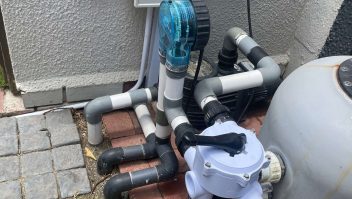The pool pump capacitor is an important component of your pool’s pump system, helping it start and run efficiently. Understanding how to test a pool pump capacitor is essential to troubleshoot potential pump issues. In this guide, we’ll walk you through the steps to test your pool pump capacitor safely.
What Is a Pool Pump Capacitor?
A pool pump capacitor provides a boost of electrical power to the motor during startup. If the capacitor malfunctions, your pump might not start or run inefficiently. Testing the capacitor is crucial for diagnosing pump problems.
Signs of a Bad Capacitor
Before testing, look for these common signs of a faulty capacitor:
- Pump motor won’t start or hums but doesn’t turn on
- Strange buzzing sounds from the motor
- Pump works intermittently
How to Test a Pool Pump Capacitor
- Turn Off Power: Always make sure to disconnect the power supply before attempting any electrical work on your pool pump.
- Remove the Capacitor: Depending on your pump model, you may need to remove the cover to access the capacitor.
- Use a Multimeter: Set your multimeter to the capacitance setting, then place the leads on the capacitor’s terminals. A working capacitor should give a reading that matches the value printed on it.
- Check for Continuity: If your multimeter shows no reading or a very low reading, the capacitor is likely bad.
Conclusion
Testing your pool pump capacitor is an essential troubleshooting step to ensure your pump works efficiently. If you discover that the capacitor is faulty, replacing it can resolve a range of motor problems and prevent further damage.
FAQ Section
1. Can I test the capacitor while it’s still connected? It’s best to remove the capacitor from the pump for accurate testing to avoid any false readings.
2. How often should I test my pool pump capacitor? You should only test it when experiencing pump issues, such as not starting or unusual sounds.
3. What happens if the capacitor is bad? A faulty capacitor can prevent the pool pump from starting, leading to poor circulation and filtration.
4. Can I replace the capacitor myself? If you’re comfortable working with electrical components, you can replace the capacitor yourself. However, it’s advisable to consult a professional for safety.



